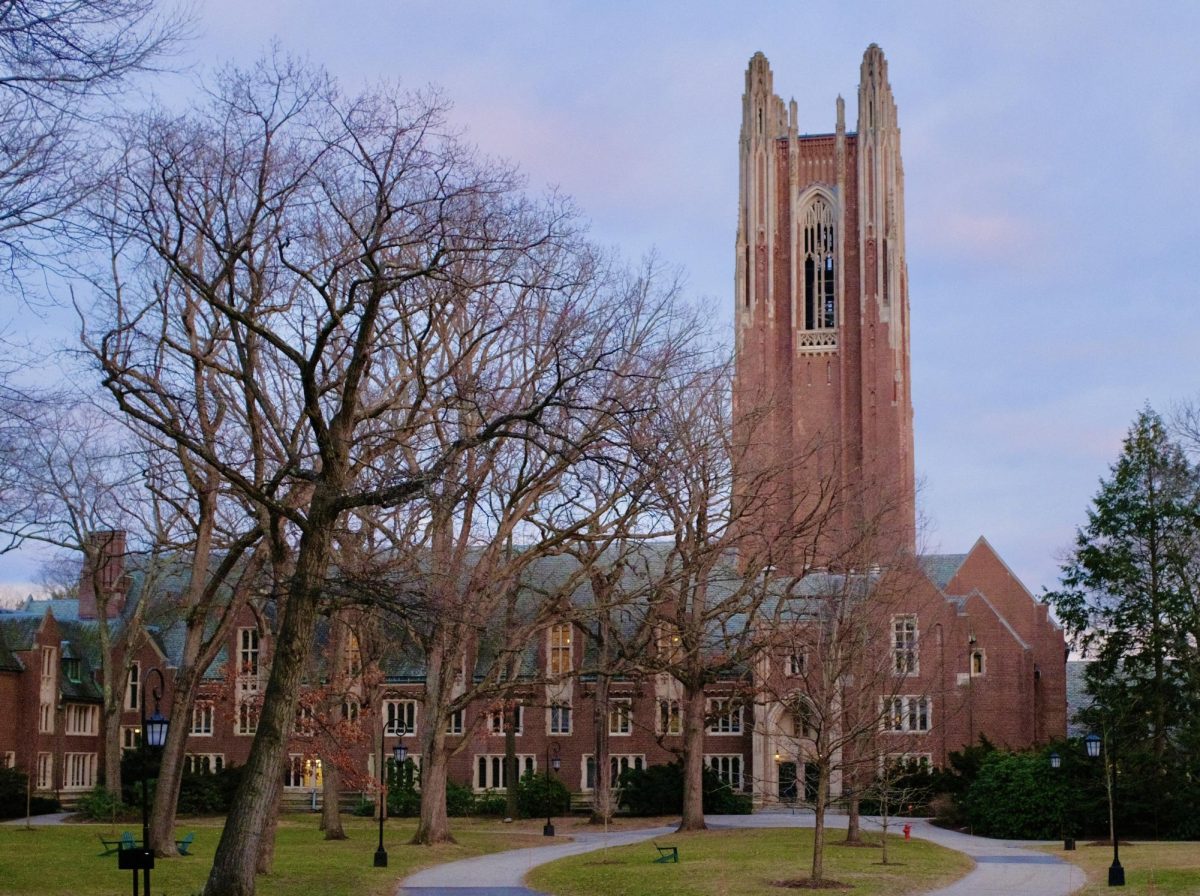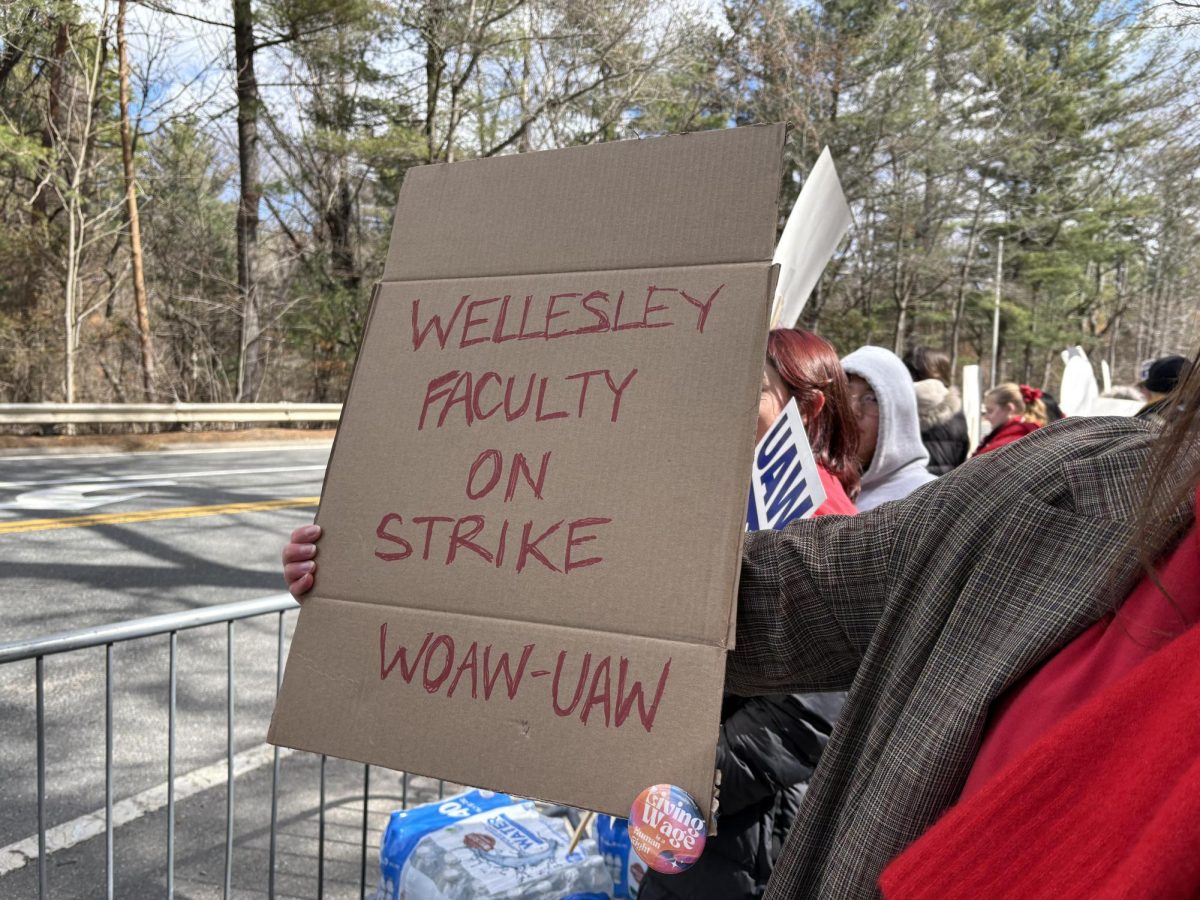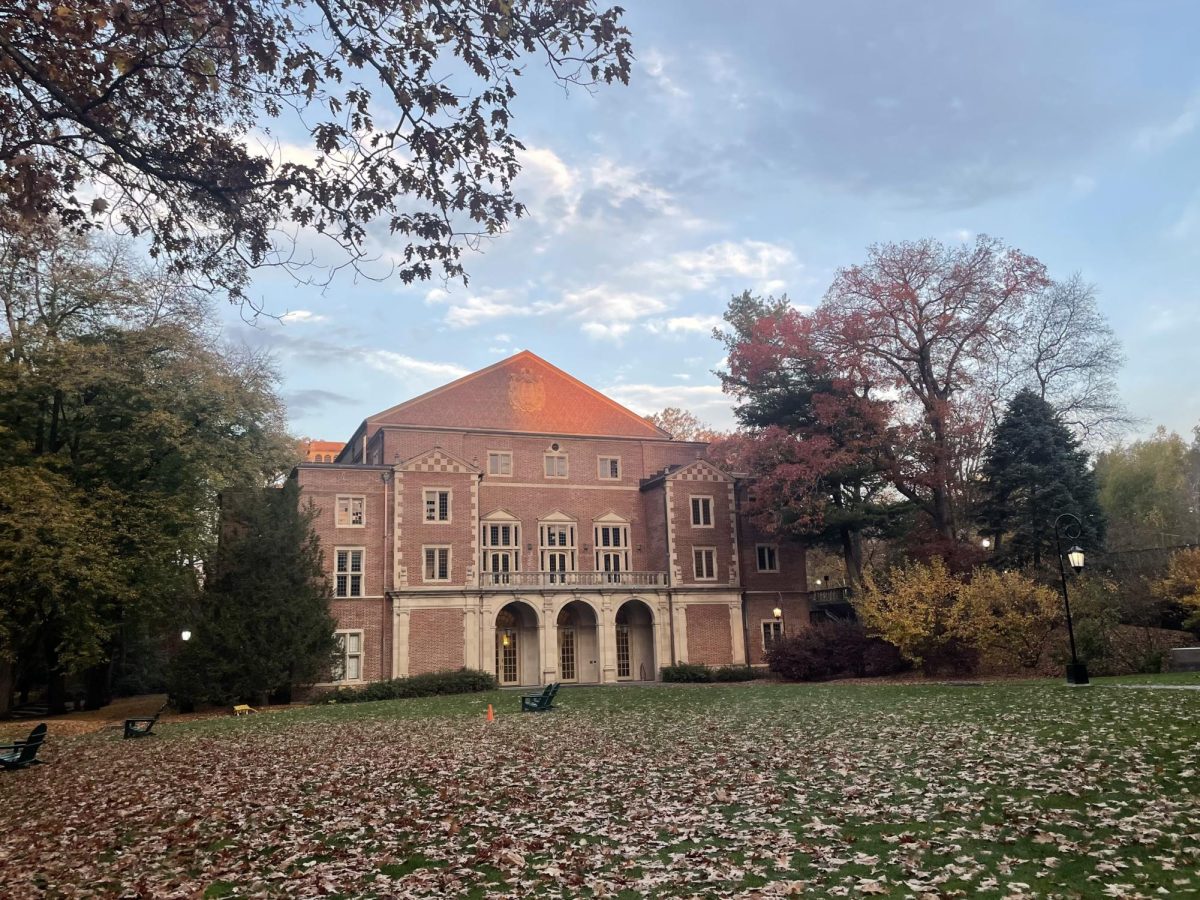An atmosphere of shock and anxiety settled upon Wellesley students after Donald Trump officially became the new president-elect on Wednesday morning.
According to a Wellesley News survey sent out to the student body on Election Day, nearly 90% of the 286 people who responded voted for Kamala Harris. The News reported live updates from multiple election day watch parties on Tuesday night, where sentiments shifted from students cautiously hopeful for a Harris win to devastating shock as Trump’s lead widened throughout the night.
Trump won both the Electoral College and the popular vote, the first Republican to do so since 2004.
“I kind of expected the Electoral College to go to Trump, [but] I was disappointed in the popular vote,” said Shivani Swaminathan ’28.
The next morning, there was a noticeable mood shift on campus as many professors canceled class, and students were seen hugging one another for support.
On Wednesday, Rori Li ’28 sported a blue suit that she brought from home to show support for Harris and disappointed peers. She was unable to vote because her ballot came too late, but she wanted to make up for not casting her vote.
“I was … worried about the state of the College’s reaction to this,” Li said.
On Wednesday night, about 30 students attended a “primal scream” in the Academic Quad, which was organized on Sidechat and Instagram as a way to process the election results many Wellesley students did not anticipate.
Although Ashley Greene ’28 narrowly missed the scream after running to the Academic Quad from the Science Center, she still felt empowered by the solidarity.
“It felt like other people were getting their stress out. It felt good to hear the amplified voices of so many people,” Ashley Greene said.
Ashley Greene, from North Carolina, was disappointed that Trump won her home state for the third time. North Carolina was the first key swing state to go to the Republican Party on Nov. 5.
“I just felt betrayed. I knew we went red last [election]. I had hoped that we would learn from our mistakes, but it didn’t work out that way,” Ashley Greene said.
Other students who come from more conservative states shared concerns for their family and friends back home.
“My state is very immigrant populated,” said Emily Goldstein ’27, from Houston, Texas. “Just seeing how this is going to impact my family, my friends, my community — it’s just hard to watch everything unfold.”
Svetlana Greene ’25, from Minneapolis, Minnesota, said that she is not as worried about her hometown because many rights remain protected in that area. Tim Walz, the state’s governor and the Democratic Vice President candidate, appeared to offer a shelter from conservative policies in a remark last Friday.
This may not be the case for many of Svetlana Greene’s peers, who may have to move from their home communities due to issues like abortion access. In Minnesota, abortion is legal under all circumstances.
“I know many students that live in red states, and I worry a little bit about their choice of future,” said Svetlana Greene.
During this emotional aftermath of the election, students are left to find ways to cope.
“It’s been hard to see the light and think about steps forward, but I think I’m slowly getting there. I’m a prospective music major, so art is also going to be a really big output for me,” said Jordan Scoville ’28.
Students are looking at how Harris supporters can continue to fight for their rights, especially during the next four years.
“I think the most important thing is to just move forward and know what actions we have to take during the time that he’s president to make sure that things are as minimally bad as possible,” said Niharika Wangikar ’28. “For me, the most important thing is just grieving, resting and then determining how to take action from there.”
Still, concerns remain among students, especially among transgender students — a demographic that the new president-elect has constantly targeted.
“As a trans person, I’m worried about my ability to transition and my autonomy with the federal abortion bans that lawmakers on the right have proposed,” Scoville said. “I’m scared for my fellow trans friends, especially those of them younger than me who had zero say in this, but are going to the ones most affected.”
In an October campaign ad, Trump said he would end transgender care in prisons and jails and restrict access to gender-affirming care and transgender participation in sports.
Goldstein extends this worry to Trump and his supporters targeting women, immigrants and others in the LGBTQ+ community.
“It will give those people a larger voice, and women will be put in this situation that is more unsafe. It will just be a time of terror. I’m very scared as a woman,” said Goldstein. “What else Trump is willing to do?”
Contact the editor responsible for this story: Valida Pau, Sazma Sarwar




